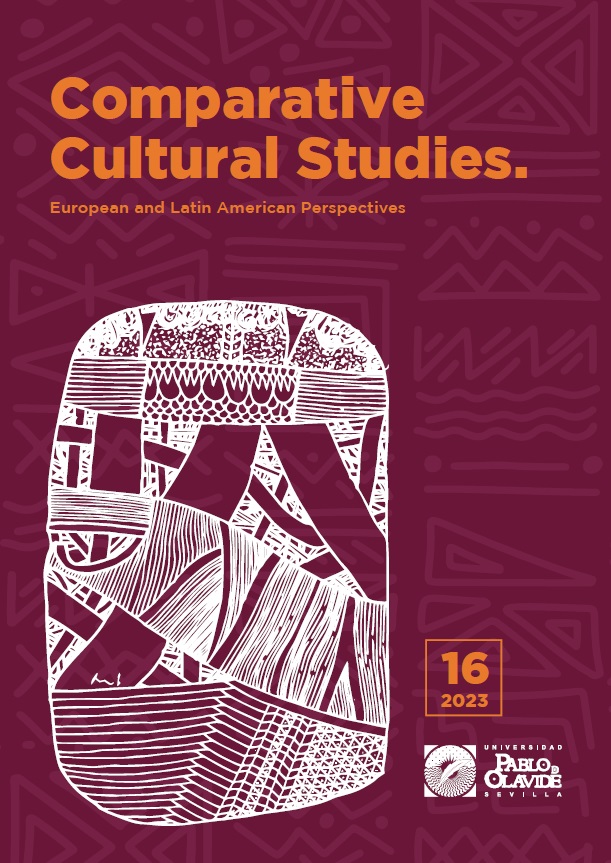Far beyond Lua Branca
the chamber songs of Francisca Gonzaga
DOI:
https://doi.org/10.46661/ccselap-14292Keywords:
Brazilian Art Song, classical singing, Brazilian women composers, chamber vocal repertoireAbstract
This article discusses Chiquinha Gonzaga's songs for voice and piano from the point of view of the Brazilian Art Song. Although the composer's work has always been considered more Brazilian popular than classical music, several of her songs have chamber music characteristics; therefore, it is suitable for interpretation by classical singers. Also, the source of her songs is sheet music, as she mainly worked before radio and recording. The biased view that considers her music exclusively popular has been questioned, and arguments are presented using the historical context in which the composer lived. Likewise, the article tried to find examples of songs with characteristics of art song, and therefore, suitable for lyrical interpretation. It presents some examples justifying their use in the repertoire of singers and lyrical singing students. This article aims to contribute to the awareness that studying and singing more of Chiquinha Gonzaga's songs is needed.
Downloads
References
Acervo Digital Chiquinha Gonzaga. Acessado em: https://chiquinhagonzaga.com/acervo/.
Andrade, M. (2013). Música, doce música. Nova Fronteira. Acessada em: https://doceru.com/doc/xnvc050).
Braga, W. (Marcos Apolo Muniz). (2021). Recital de Canções Chiquinha Gonzaga. Acessado em: https://www.youtube.com/watch?v=spJEcbT5-xg.
Braga, W. (s.r). Acervo digital Chiquinha Gonzaga. Acessado em: https://chiquinhagonzaga.com/acervo/.
Castagna, P. (2003). A música urbana de salão no século XIX. História da Música Brasileira Course Booklet. São Paulo: Instituto de Artes da UNESP. Acessado em: https://scholar.google.com/scholar?hl=en&as_sdt=0%2C5&q=A+m%C3%BAsica+urbana+de+sal%C3%A3o+no+s%C3%A9culo+XIX.+Hist%C3%B3ria+da+M%C3%BAsica+Brasileir a+Course+Booklet.+&btnG=.
Diniz, E. (2009). Chiquinha Gonzaga: uma história de vida. Rio de Janeiro, Brasil: Jorge Zahar Editor Ltda.
Diniz, E. (2011). Inventário parcial de músicas. Acessado em: https://www.chiquinhagonzaga.com/musica/Chiquinha_Gonzaga_musica.pdf.
La Boite à Pépites. (Alexis Lardilleux). (2021). Chiquinha Gonzaga, A Sertaneja - Marie-Laure Garnier, Héloïse Luzzati, Célia Oneto Bensaid #4. Acessado em: https://youtu.be/mcUWEQOJ1P0.
Lira, M. (1978). Chiquinha Gonzaga: grande compositora popular brasileira. Rio de Janeiro, Brasil: FUNARTE.
Mariz, V. (2002). Canção brasileira de câmara. Rio de Janeiro, Brasil: Francisco Alves.
Picchi, A. (2019). Canção de Câmera Brasileira: teoria, análise e realização. Rio de Janeiro, Brasil.
Rocha, E. M. (1986). Nós, as mulheres (notícia sobre as compositoras brasileiras). Rio de Janeiro, Brasil: Rabaço Editora.
Tinhorão, J. R. (2013). Pequena história da música popular: da modinha ao tropicalismo. São Paulo, Brasil: Art Editora.
Verzoni, M. (2011). Chiquinha Gonzaga e Ernesto Nazareth: duas mentalidades e dois percursos. Revista Brasileira de Música, PPG Música. Escola de Música da UFRJ. Acessado em: https://revistas.ufrj.br/index.php/rbm/article/download/29 330/16475.
Vieira, A. J. (2020). A Questão da intepretação dramática na canção brasileira urbana. Anais do XXX Congresso da Associação Nacional de Pesquisa e Pós-Graduação em Música. Acessado em: http://anppom-congressos.org.br/index.php/30anppom/30CongrAnppom/paper/viewFile/34/22.
Downloads
Published
How to Cite
Issue
Section
License
Copyright (c) 2023 Maria Luiza Mestrinho Sylvestre

This work is licensed under a Creative Commons Attribution 4.0 International License.
This licence allows third parties to share (copy and redistribute the material in any medium or format) and adapt (remix, transform and create from the material for any purpose, including commercial purposes), provided that authorship and first publication in this journal (The Journal, DOI of the work) is acknowledged, a link to the licence is provided, and it is stated whether changes have been made to the work.







